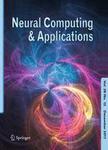版权所有:内蒙古大学图书馆 技术提供:维普资讯• 智图
内蒙古自治区呼和浩特市赛罕区大学西街235号 邮编: 010021

作者机构:College of Computer Science and Engineering Jishou University Jishou416000 China School of Business Jiangnan University Wuxi214122 China Faculty of Information Technology and Electrical Engineering University of Oulu Oulu90570 Finland VTT-Technology Research Center of Finland Kaitovayla 1 Oulu90570 Finland
出 版 物:《Neural Computing and Applications》 (Neural Comput. Appl.)
年 卷 期:2025年第37卷第8期
页 面:6163-6179页
核心收录:
学科分类:08[工学] 0835[工学-软件工程] 0701[理学-数学] 0812[工学-计算机科学与技术(可授工学、理学学位)]
摘 要:The public release of ChatGPT represents a significant milestone in generative AI technology, enabling the autonomous generation of content based on pre-training. This breakthrough presents new opportunities for advancements in the field of portfolio selection. This paper aims to introduce a comprehensive portfolio selection method by applying ChatGPT for stock selection and combining it with optimization algorithms to jointly optimize portfolio selection. Compared to randomly selected stocks, the portfolios optimized using ChatGPT-selected stocks and solved with the egret swarm optimization algorithm (ESOA) demonstrate higher diversification and lower volatility, leading to superior portfolio optimization results. Additionally, to validate ESOA’s superiority, its performance is compared against genetic algorithm (GA) and particle swarm optimization (PSO) on five metrics: risk, expected return, Sharpe ratio, objective value, and penalty term. Under equivalent experimental setting, ESOA exhibits a better ability to balance the relationship between risk and return. © The Author(s), under exclusive licence to Springer-Verlag London Ltd., part of Springer Nature 2025.